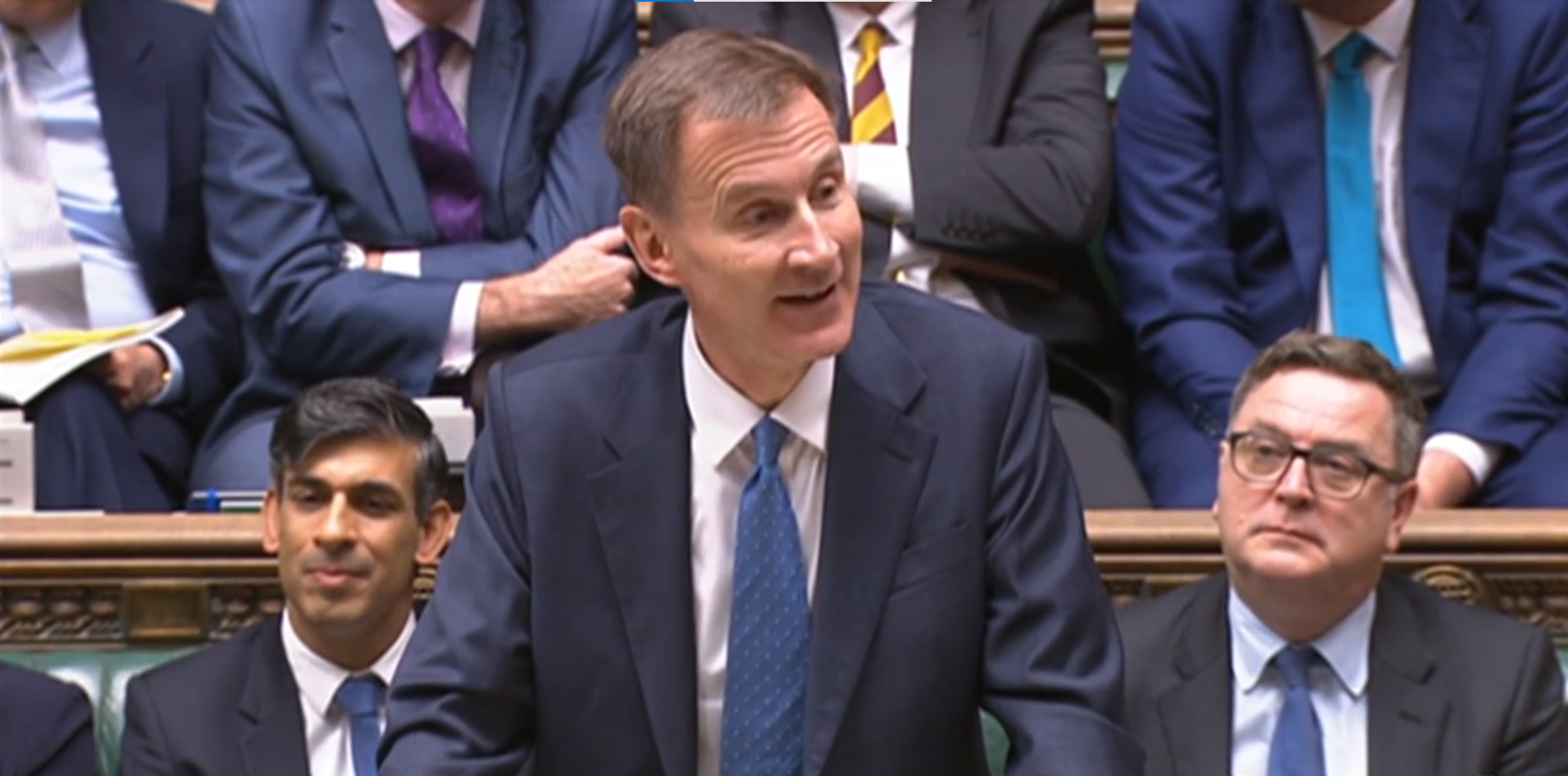
Photo: UK Parliament
Autumn Statement: Sector criticises lack of support for arts
Concerns raised over absence of long-term plan for the creative industries, but grassroots music industry welcomes measures to freeze alcohol duty and support the lowest paid.
Measures announced in Chancellor Jeremy Hunt's Autumn Statement do little to address the impact of ongoing cuts to public funding for the arts, figures in the sector have said.
The statement, delivered by Chancellor Jeremy Hunt today (22 November), focused primarily on tax cuts for individuals and businesses as well as investment in areas such as manufacturing and artificial intelligence and did not include a direct mention of the UK’s arts and culture sector.
However, the music industry has welcomed the decision to support the lowest paid and says a freeze on alcohol duty until next autumn will help grassroots venues.
READ MORE:
- Autumn Statement could make sector vision a reality
- Autumn Statement: Creative industries urge action on arts education
Among the measures announced by Hunt was an extension of a 75% business rates discount for retail hospitality and leisure businesses for another year.
Hunt also said the government will look into making tax credits more generous for film and high-end TV productions.
Equity General Secretary Paul W Fleming said that while the government’s continued support for industry through tax reliefs and expenditure credits is welcome, it represents "one step in a roadmap towards investing the European average of 0.5% of GDP in the creative industries".
“We need long-term planning for brighter creative industries, not short-term decisions for electoral gain,” he said.
He added that there have been billions of pounds in cuts to public funding for the arts.
Fleming went on to say that the self-employed are being "shortchanged" by proposals to reduce National Insurance contributions, describing the move as a "headline-grabbing tax cut".
"Our self-employed members want investment to fix the holes in the social security system and public services,” he said.
'Real support needed'
Gillian Miller, CEO of Liverpool's Royal Court Theatre, said that while it is "good for cities when people have a little more money in their pockets", tangible support to help cultural, retail and leisure businesses to survive is necessary.
"With no ongoing support to tackle energy bills, you do fear that some institutions will find it too difficult to keep their doors open once the current scheme ends in March," she said.
"Extending the 75% business rates discount for retail, hospitality and leisure for another year is welcome, but it does little to help those of us with five, 10 and 15-year plans.
"The self-employment tax cut is welcome news, especially for our artists, but as a sector, we need more target support that helps us to hold onto our buildings, helps us to continue to offer great programmes to our audiences and allows us to have aspirations to grow for the future."
Grassroots music
Mark Davyd, CEO of Music Venue Trust, said his organisation "warmly welcomes" the continuation of the 75% relief to business rates for Grassroots Music Venues.
"The potential cancellation of this relief presented the possibility of an additional £15m in pre-profit taxation falling onto a grassroots sector suffering a severe crisis; over 120 venues have already closed in the last 12 months.
"It was essential to keep this relief in place, and we are pleased that our presentations to Treasury were listened to and acknowledged by this outcome."
He added that increasing minimum wage levels was "long overdue".
"The grassroots sector is notoriously undervalued and underpaid, from the artists performing through all levels of roles and staffing, up to and including the venue operators themselves," he said.
Join the Discussion
You must be logged in to post a comment.